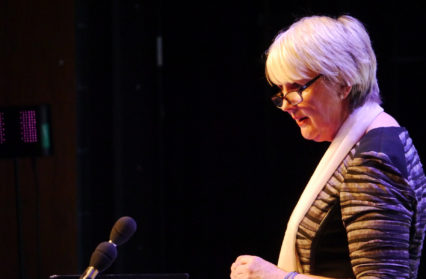Sian Gwenllian AM, Plaid Cymru Shadow Minister for Education (and the Welsh Language), argues the case for stronger history curriculum for Welsh pupils.
No one should be deprived of learning about their history. Certainly, no pupil in Wales should be deprived of the opportunity to learn about Welsh history. The recent surge of the Cofiwch Dryweryn murals replicated across Wales alongside the recent creative re-telling of the south Wales race riots of 1919 are an indication that there is a real appetite to teach and learn about the history of Wales.
There has never been a real focus on Welsh history in the curriculum in Wales. Arguably, most pupils in Wales learn more about the history of England than of their own country and area. History as a subject has been, for the most part, limited to a narrow range of topics which never offered the Welsh perspective or the Welsh experience in its syllabus. There is now an opportunity to change this – an opportunity that must be grasped by both hands.
The new Curriculum for Wales is a real chance to not only right the injustice of those who were not given the opportunity to learn about Welsh history at school but also ensure that when we do come to teach the history of our country to the next generation, we do so in a way that is representative of the richness and diversity of that history. Neolithic Wales. Romans and Celts. Y Gododdin. Hywel Dda and the first laws of Wales. The age of princes, Owain Glyndwr’s revolt, and the subsequent 1536 act of union which laid the foundations for the modern United Kingdom as we know it.
The industrial revolution which made Wales a leading global industrial nation. Dic Penderyn and the Merthyr Rising of 1831. Reformation. The Rebecca Riots and the race riots of 1919. Wales’s implication in the horrific global slave trade and empire. Somali and Yemeni sailors settling in the docks of Butetown and Barry and the contribution of the Welsh Windrush generation. World wars. Suffrage. Tryweryn. The miner’s strike and LGBT rights. The Welsh language movement. The referendum of 1997 and the establishment of the Welsh Senedd.
The teaching of Welsh history is a key component of helping the next generation to become informed and engaged citizens of not only Wales but of the world.
That’s not being narrow-minded. That’s ensuring that our young people have a solid foundation as they go forward into the world. After all, “How can we know where we’re going if we don’t know where we’ve been?”
The Welsh Government published its draft version of the Curriculum for Wales on 30 April 2019, will be publicly consulting on its contents until July, before publishing a final version in January 2020. That’s why we need this conversation about Welsh history – now.
The draft curriculum confirmed that history will be taught under the broader subject of Humanities. There will be a national framework for maintained schools to build on and develop their own curriculum but there will be no guide or syllabus. Teachers will only have to meet the curriculum’s requirements of ensuring their pupils are:
informed citizens of Wales and the world
ambitious and capable learners
enterprising and creative contributors to society
healthy and confident individuals.
The draft Humanities Area Of Learning and Experience states that it needs to support learners to “develop an understanding of Wales and their own understanding of what it means to be Welsh.”
History is mentioned but not Welsh History in the list of subjects to be taught under Humanities. I want to see ‘History’ changed to ‘The History of Wales and the World’ for clarity. We simply don’t know whether the subsequent guidelines will detail which period of Welsh history, or historic events within Welsh history, will feature within the new curriculum. This would be a better foundation from which to build.
The principle behind the new curriculum is commendable. It has been designed to give teachers the freedom and opportunity to be creative when teaching within their subject fields and demonstrates a recognition of the skills and abilities of our teachers.
However, when it comes to practicalities and implementation, the government’s proposals are arguably too vague and could result in inconsistency and inequality. We need detail on how the new curriculum will be implemented – particularly in a climate of cuts to schools budgets. Teachers must be given adequate time and training to get to grips with the new curriculum. And crucially, for the teaching of Welsh history, adequate teaching resources need to be sourced and developed. Good practice must be harnessed and universities need to play their full part in developing new, exciting tools that teachers can use when planning their lessons.
All pupils should receive the same opportunities to learn about Welsh history in all its forms in a way that challenges and inspires them. The new curriculum must cultivate and deliver an understanding of Welsh history, language and culture, not only to focus on the past, but as a means of helping the citizens of Wales understand their world.
We can make right the injustice of the decades of absence of Welsh history in our classroom by ensuring that the history of Wales is taught to every school pupil in Wales and do so in a way the ensures accessibility and equality. If the aim of the new curriculum is to develop our young people into confident, engaged and informed citizens then that must be reflected in its implementation and delivery.











